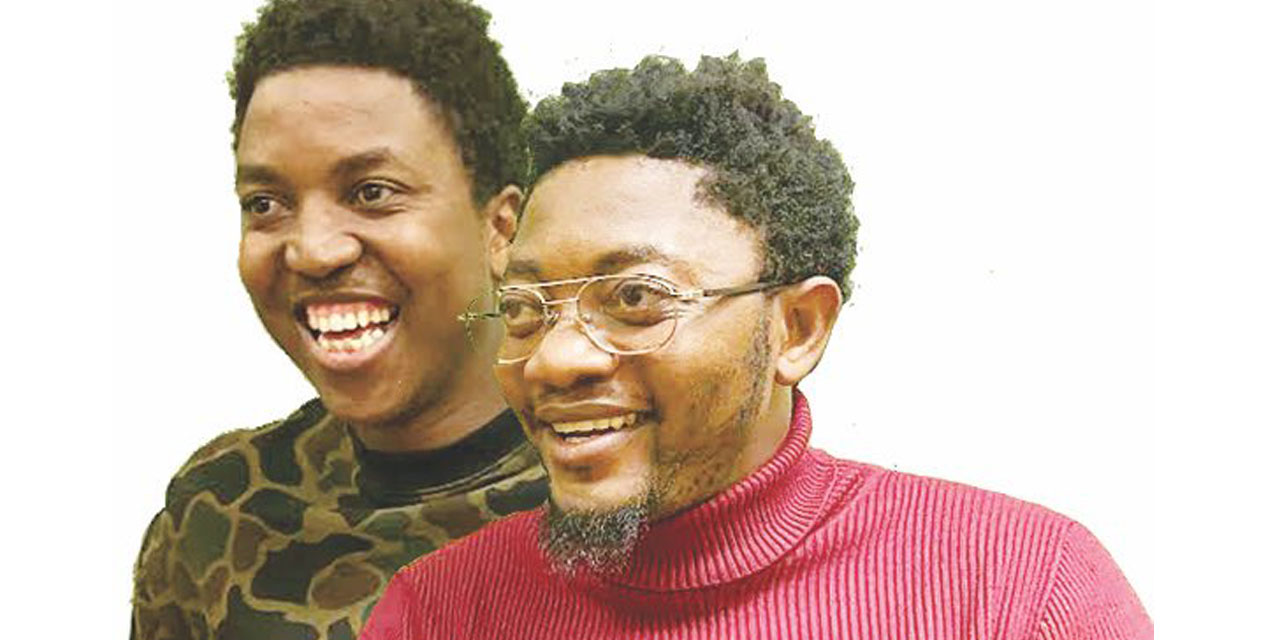Obrein Simasiku
The fight for freedom of two activists that was taken to the High Court, has paid off for Namibia Economic Freedom Fighter (NEFF) member Michael Amushelelo and Affirmative Repositioning Movement’s (AR) Dimbulukeni Nauyoma.
The two have been in incarceration for 99 days since their arrest on 13 May, following their involvement in mass protests that sought to shutdown Chinese owned businesses and were released on bail.
High Court judgement Christie Liebenberg today set the men free by granting them bail of N$5000 each. This is after the judge found that there were no strong grounds to have the two in continued detention pending the finalisation of the matter. Judge Liebenberg attached conditions, that the duo shall not shall not mobilize or involve themselves in any unlawful public gathering, and that they are not to go into 1km radius of the ChinaTown area.
The High Court appeal comes after the duo’s attempts to be released on bail was turned down in a judgement brought forward in the Katutura Magistrate’s Court on 24 May. Nauyoma, including six other co-accused, NEFF president Jan-Epafras Mukwiilongo, Lawrence Mwatile, Emily Mununga, Annacky Amupanda, Risto Ithikwa, and Amushelelo’s wife Julieta Amushelelo, were charged with public violence, while Amushelelo was facing an additional charge of assault through threatening. The six were released on warning the same day, while Nauyoma and Amushelelo were made the sacrificial lambs.
The accused participated in a chaotic protest that was held at China Town in retaliation to Namibia Revenue Agency (NamRA) exercise that destroyed goods worth N$5 million which were allegedly counterfeit. This made the public very angry boiling over into the protest as the accused and a thousands more demonstrators marched on Chinese businesses alleged that they are the hub of counterfeit products, yet getting alleged preferential treatment from the authorities.
They were denied bail on grounds that the charges they were facing were serious and that it will not be in the interest of justice and the public, as well as the fear that they would re-offend, as concluded by magistrate Masule Kwizi, who at the time also said he could not establish stringent bail conditions.
Judge Liebenberg found that the lower court magistrate misdirected himself and the decision to refuse bail was wrong and set it aside.
“The release of six co-accused facing the same charges as the appellants on warning and not the appellants, was a material factor which required further scrutiny by the court during the bail application. For all means and purposes, their co-accused were in the same boat and ought to have been treated the same, except where compelling circumstances existed which required a different approach,” remarked Liebenberg.
He added that, “at the time of the bail hearing there was no evidence that remotely explained the differentiation made by the police between the appellants and their co accused when releasing the latter on warning. The effect of releasing some accused on warning, in the court’s view, signalled a significant downscaling of the seriousness of the offence. Also, there is nothing in the record that remotely explains or justifies the inconsistent handling by the police of the appellants’ case, opposed to that of their co-accused.”
The judge further established that, the true reasons for the denial of bail were not explored, “the only reasonable conclusion to reach is that the disparity was because both appellants were already out on bail on other cases.”
“The failure on the part of the magistrate to obtain material information relevant to the outcome of bail proceedings, constituted a misdirection. However, not every misdirection committed leads to the entire proceedings being vitiated, as the effect thereof must be decided against the evidence as a whole.”
Amushelelo and Nauyoma were represented by lawyers Kadhila Amoomo and Nambili Mhata, while Basson Lilungwe stood in for the state.




